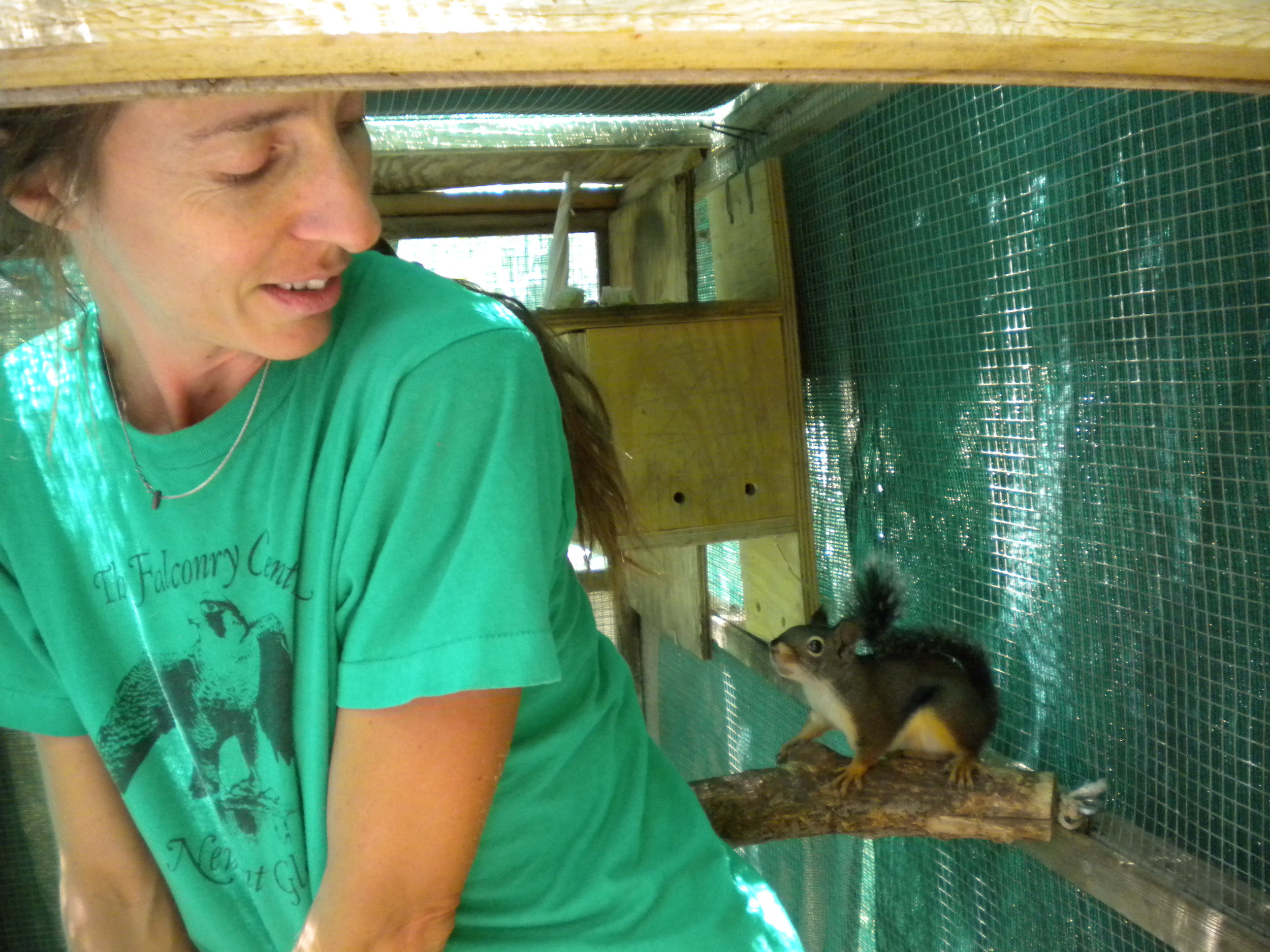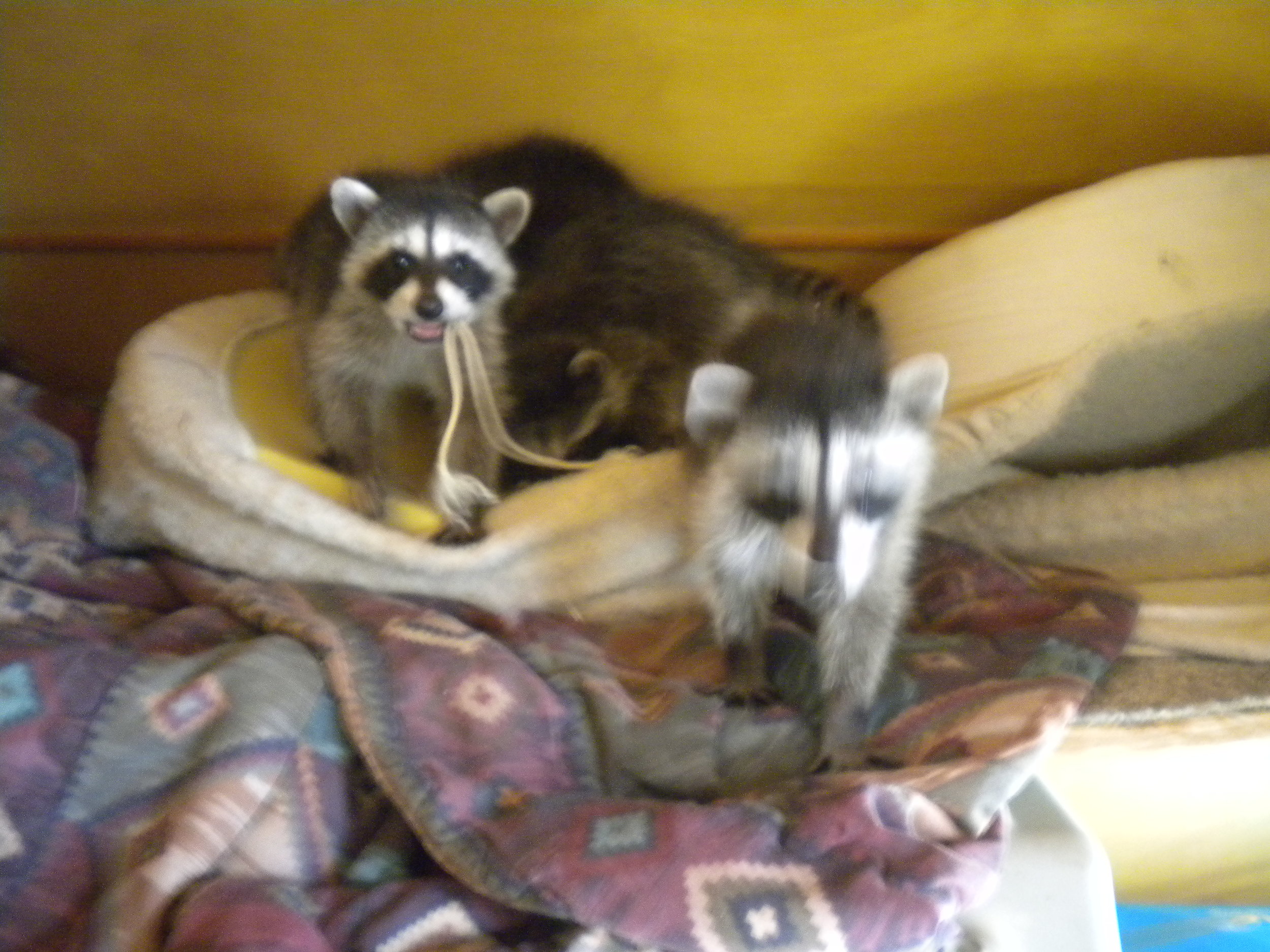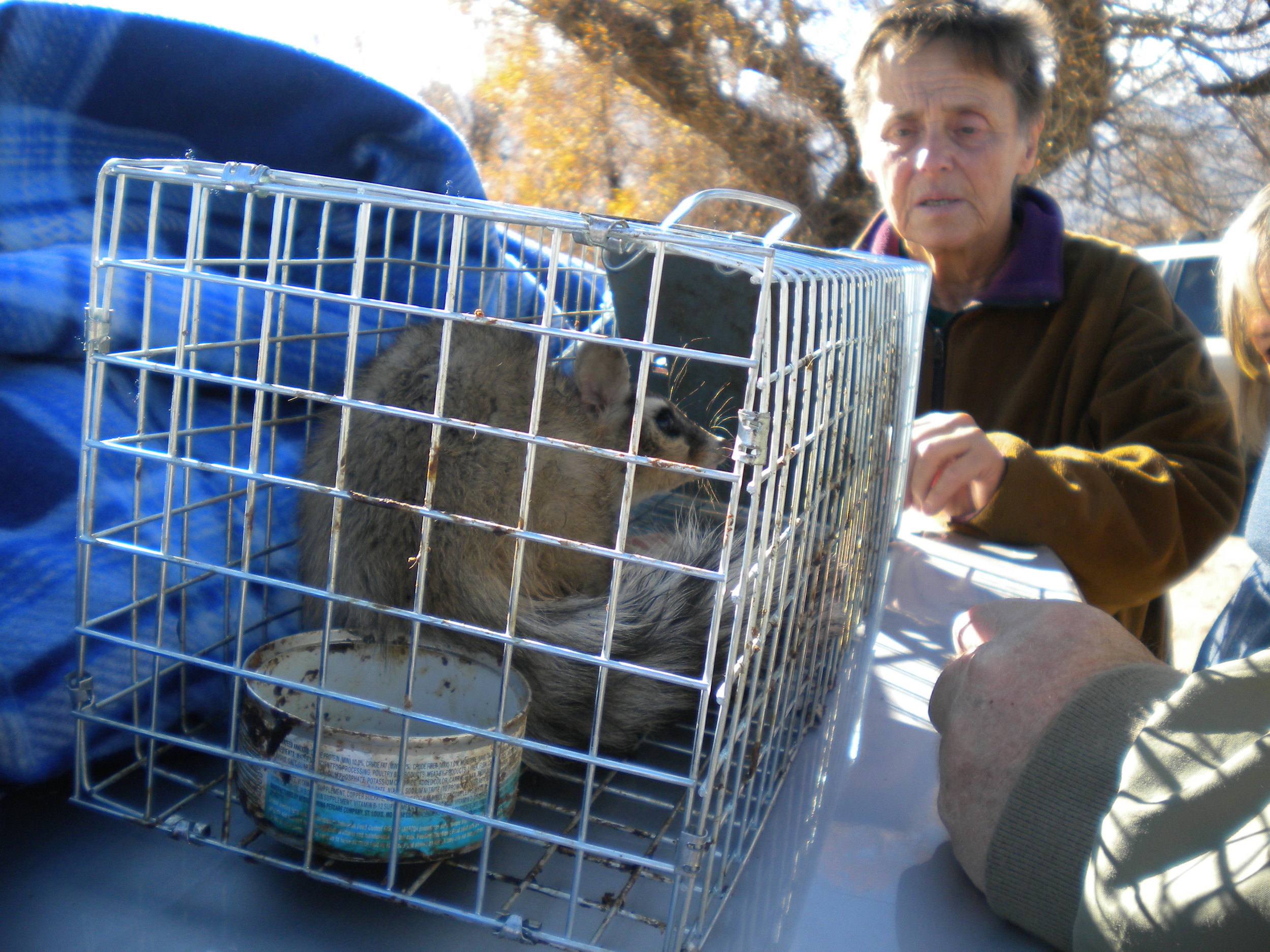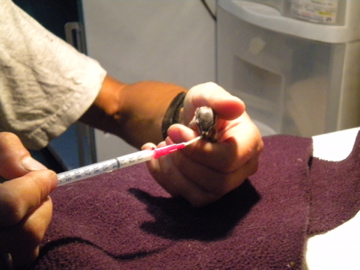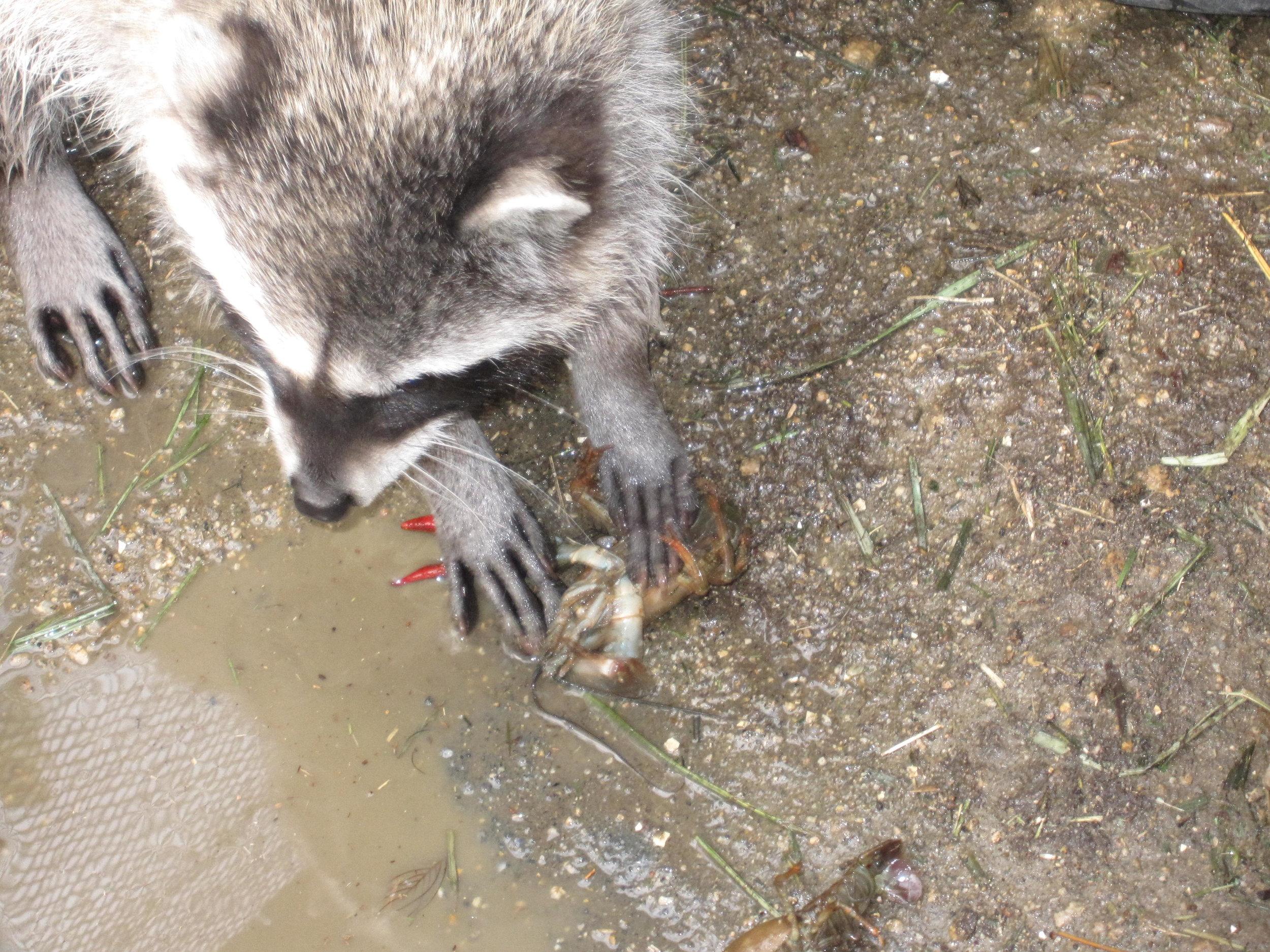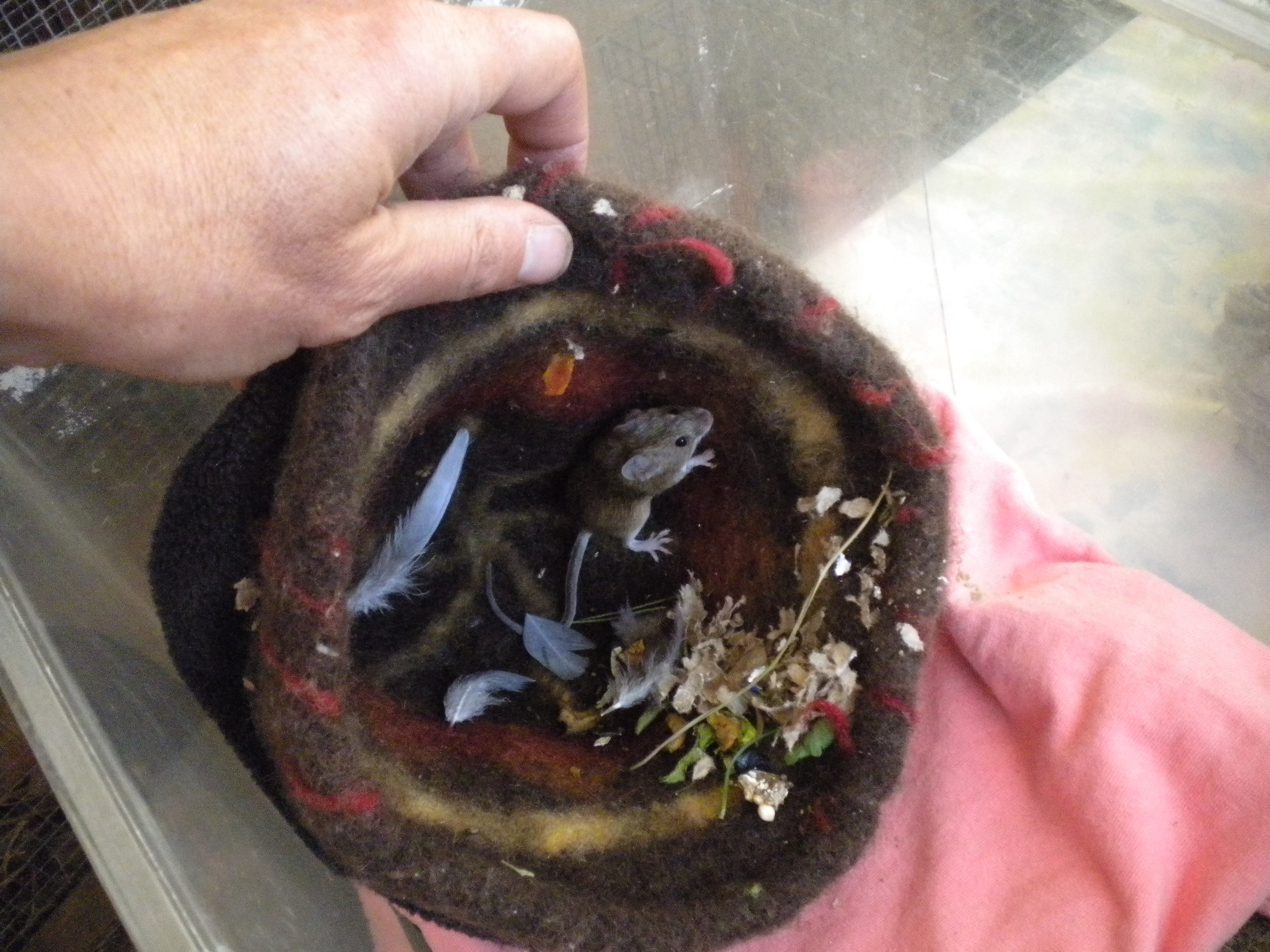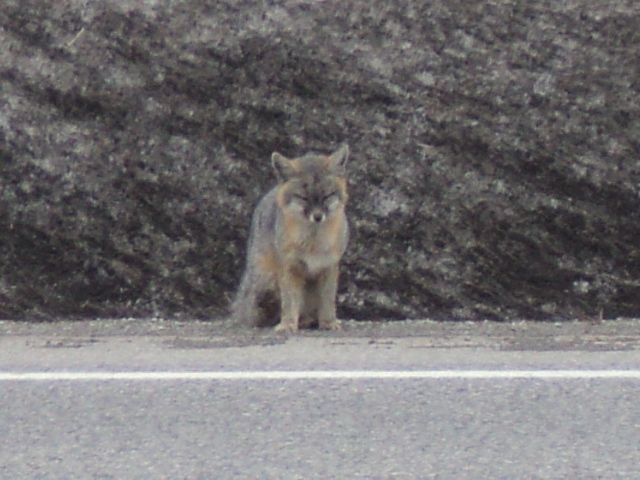What do I do if I find a wild animal?
If you are in the Eastern Sierra area and see a wild bird or animal that may need help, see the steps below, or call us and we will help you find a rehabilitator in your area.
If you are outside the Eastern Sierra, contact IWRC (International Wildlife Rehabilitation Council) at (707) 864-1761 for referral to a rehabilitator in your area or go to our Resources for other options.
1. Does the animal need your help?
Evaluate
In general, if you approach a wild animal and it doesn't fly or run away, it needs help. It may be injured, sick or emaciated or too young to fly or walk.
Help Is Needed:
If the animal has an obvious injury, is very young (naked, pinfeathers) or in an unsafe place such as the roadside, in a parking lot, trapped in a building, etc.
A young injured fox on the side of the road.
Help May Not Be Needed:
Fawns and young jackrabbits are left alone by their parents and may be fine. It is natural to see fledgling birds on the ground with limited flight. Call for advice before rescuing.
A fledgling red-tailed hawk.
2. Yes, help is needed
Your goal is to get the bird or animal into a container and keep it safe and warm while you call Wildcare Eastern Sierra for assistance. If this is a large mammal such as a deer, bear or coyote, call the Department of Fish and Wildlife at (760) 872-1171 first. If you can't reach them, please call us before taking further action.
Secure the animal; handle gently.
Be safe. Watch out for beaks and talons! Always wear gloves when handling any mammals. Get advice before handling adult mammals. If you feel unable to handle the bird or animal, place a box or trash can over the animal and monitor it, then call our Helpline (760) 872-1487.
Drop a t-shirt, towel or jacket over the animal; bundle it gently.
Place in a padded box or other container just a little larger than the animal. This helps the animal save energy, retain body heat, and prevents further injury. (For babies, make a snug nest from tissue and a small plastic bowl.) Cover or close container and make a few air holes.
Keep the animal's environment warm, dark and quiet.
The animal is in shock, so warmth is vital. Put container half on heating pad (on low) if you have one, or provide a small bottle of hot water (leak proof!) wrapped in a towel. Put in a warm, quiet place away from people, pets, and noise. Give no food or water until you get advice!
3. Contact us for help
Call the Helpline at (760) 872-1487.
Legal questions
All wild animals are protected under state and/or federal law. It is unlawful for any person who does not have the proper training and permits to possess or attempt to rehabilitate wildlife, but the law saws that a member of the public may briefly possess an animal while attempting to get help from a licensed rehabilitator or a veterinarian. If there is a delay of more than 24 hours, you must notify the local Department of Fish and Wildlife office.

